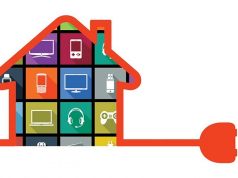
How do you and your partner decide who gets to choose the first property? When buying real estate as a couple, it’s remarkable if you are on the same page when making decisions. It is crucial to discuss your preferences, budget, and needs before looking for a property. Talk with real estate professionals like HousingInteractive to get advice and assistance in choosing the right property for your needs and budget.
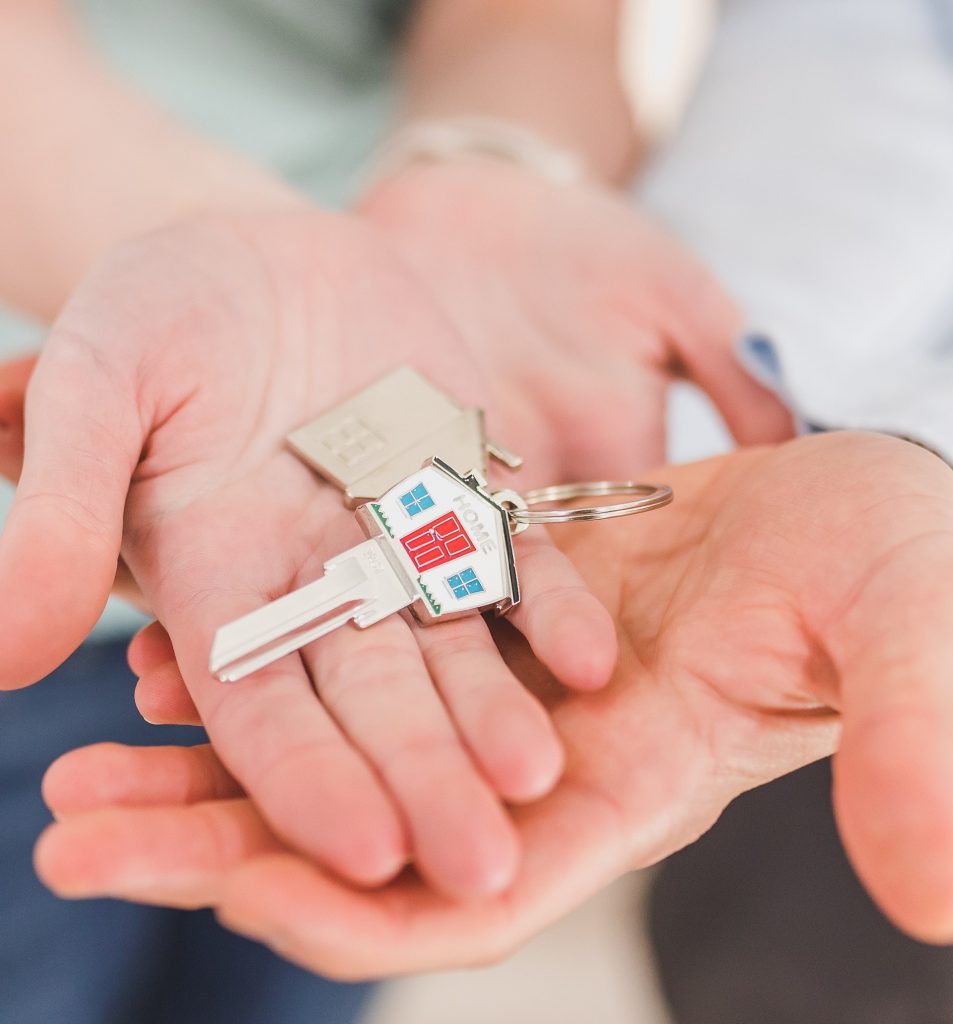
Investing in real estate is a great way to secure your financial future and build wealth together, especially if you’re a married couple and a first-time homebuyer. But before getting started on the property hunt, let me tell you the stages you go through when you buy your first home as a couple.
The 10 Stages of Buying Real Estate
Prospective homeowners take heart. Investing in real estate doesn’t have to be intimidating or confusing: there are recognized paths for purchasing your ideal property and realizing the dream of owning a home. Whether you decide on cash, loan, or mortgage options—each approach comes with its unique set of considerations that our guide helps explain.

We provide you with in-depth guidance, analyzing your budget and requirements to ensure that the real estate investment you make is entirely secure. We will assist you in making an offer through the closing deal; so you can feel confident about your investment decision every step of the way!
Stage 1: How to buy a property
When it comes to purchasing a property, standard options include using cash, taking out a loan, or securing a mortgage. For those able to use the cash method, it is an attractive option that involves paying the straight amount, either through their savings or using funds from other sources such as inheritance or even winnings.
If this isn’t possible, individuals may opt to take out a loan from common financial institutions such as banks or avail of in-house financing and take advantage of loan programs from government entities like PAG-IBIG or SSS. Sometimes, for those unable to choose a conventional loan or alternative lending solution, there is one last option: utilizing real estate or tangible assets as collateral, allowing individuals to secure mortgages and gain access to the funds they need. These alternatives provide prospective buyers with different variations on how to purchase the dream home of their choice.
1. Cash
An attractive option for couples looking for more freedom and flexibility when purchasing a new home. With cash, you can use your funds or savings to purchase a house outright, giving you more control over the process. By avoiding taking out loans and complicated payment plans or interest rates, cash offers all these groups of people an easy way to get their hands on a property they’ve had their eyes on.
This means that instead of spending months or years worrying about payments and long-term financial commitments, you can make a confident purchase right away. You’ll also be exempt from paying additional fees associated with mortgage lenders like closing costs.
Moreover, cash gives freedom to make any alterations or upgrades you’d like in your home without being accountable to anyone else. No need to worry about breaking strict budget lines. Rather than getting stuck in loan cycles or overwhelmed by financial decisions, using cash allows home buyers to have complete control over their purchases, granting them peace of mind along the way.
2. Loan
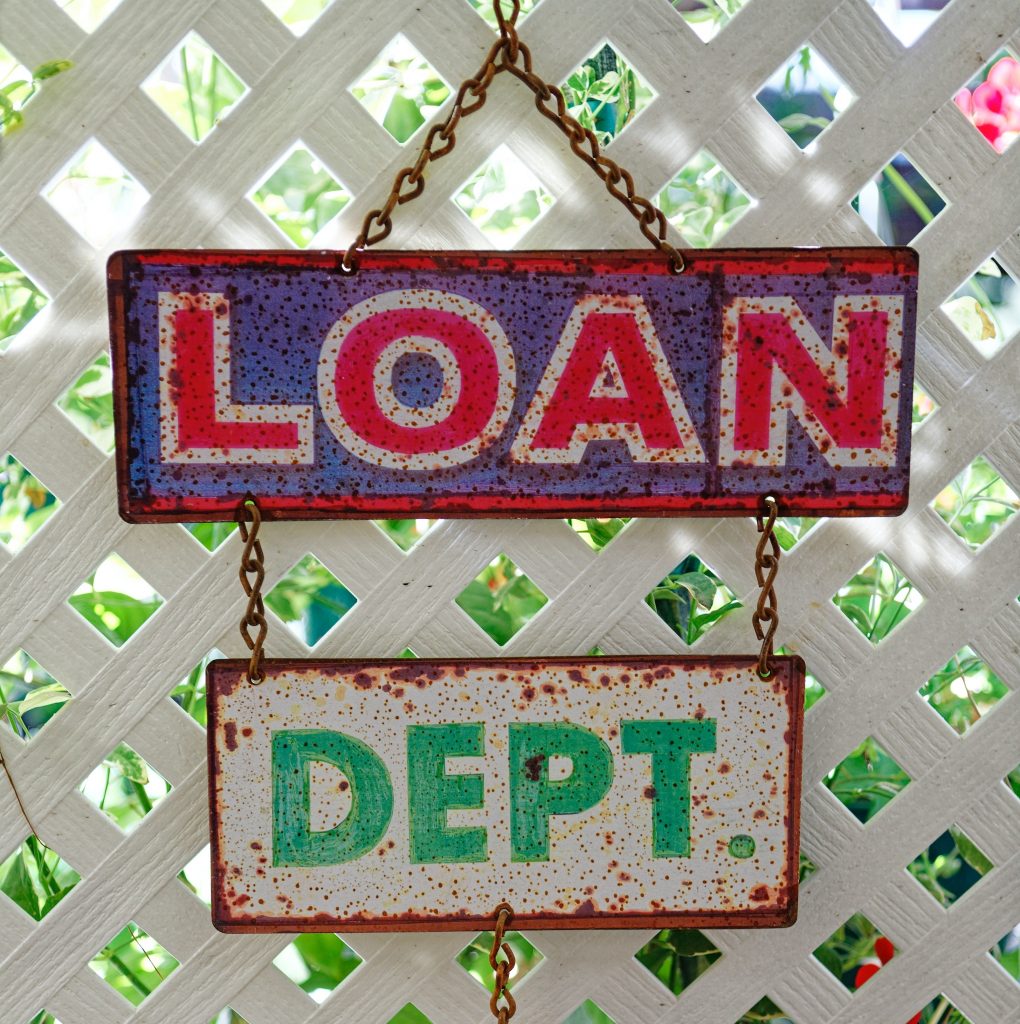
Photo courtesy of David Levinson
Are you ready to take the next big step in your life and buy a home? With so many options available, navigating which is best for you is very difficult. One of the more popular choices for buyers is loan financing. A loan from a financial institution can provide you with fast access to capital that can make your dream home a reality.
Below are some of the most common loan financing options you can choose from.
● Bank-Loaned
If you’re employed or an active member of Philippine government entities like PAG-IBIG, SSS, and GSIS then you may be eligible for special housing loan programs specifically designed to aid Filipino home ownership dreams to come true. These programs have different requirements so make sure to check out the specifics depending on where you apply from.
Regardless of the choice you decide on when it comes to buying a home through loan financing, having access to capital at a reasonable cost helps make what was once impossible into a reality. We hope this overview gave clarity on some common types of loan financing used by Filipinos when it comes to acquiring their dream home.
3. Mortgages
Alternatively, buying a home through a mortgage will get you on the property ladder. With a mortgage, you can use collateral—real or personal property such as jewelry, vehicles, land titles, or any high-value items—to secure a loan from a financial institution.
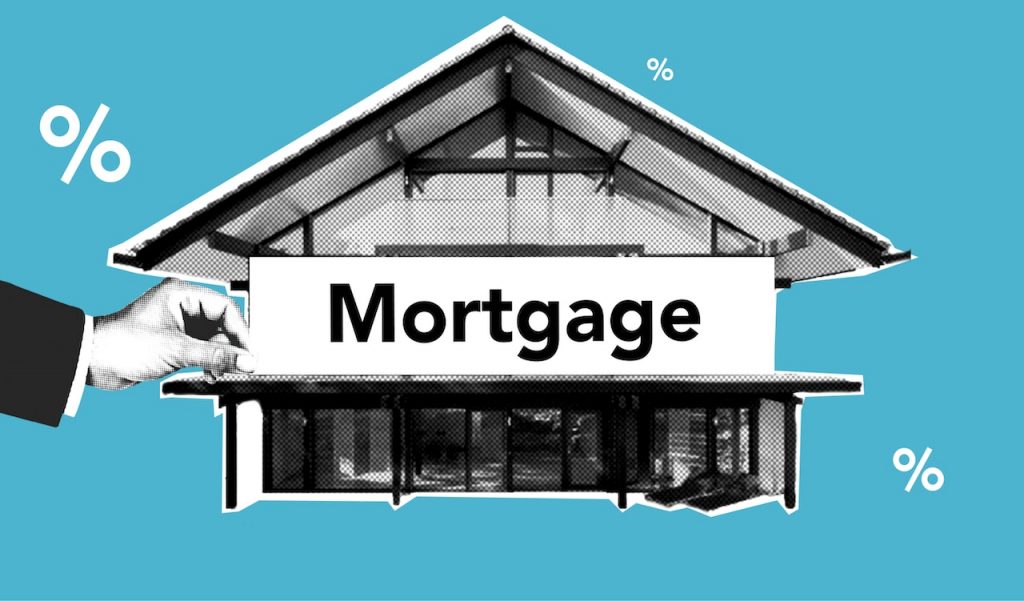
Great value mortgages offer not just low-interest rates but also the comfort and security of knowing that your funds are backed by collateral in case you’re unable to pay them back. With a mortgage, you can rest assured that your family’s financial future is safe and secure. Find out how you can benefit from tailored and flexible mortgage packages available in the market today.
| Keep in Mind Availing mortgage means that you will need to provide your lender with some basic information about your financial situation, including your income, existing debts, and credit history. Inquiring about a mortgage package will give you an idea of how much money you can borrow to buy a home and will also show sellers that you are serious about purchasing a property. |
Stage 2: What to buy
It’s important to know that there are two very different types of property options available – pre-selling and resale.
4. Pre-selling property
Presell properties are marketed straight from developers who have yet to finish their projects. If you’re an investor or even a young couple just starting, preselling could be the way to go since it often comes with attractive incentives like price discounts as well as added features like exclusive amenities before they’re available elsewhere.
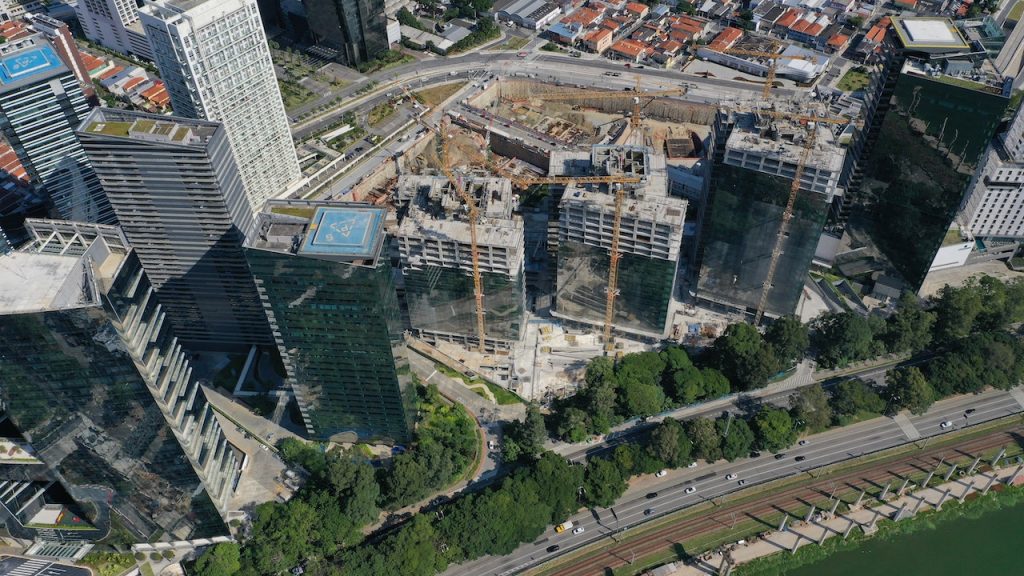
On the other hand, pre-selling properties may be a better fit if you have bigger plans or higher ambitions. Buying something now also allows you to plan and give yourself something to look forward to when the project is completed.
5. Resale property
If you’re ready to settle down and make a home, the resale market is an appealing choice. Resale properties are existing homes and buildings that were previously purchased and then sold. These types of properties offer an exciting chance to own your dream home without having to build it from scratch – at an affordable price. This is an ideal option for those who value security and convenience.
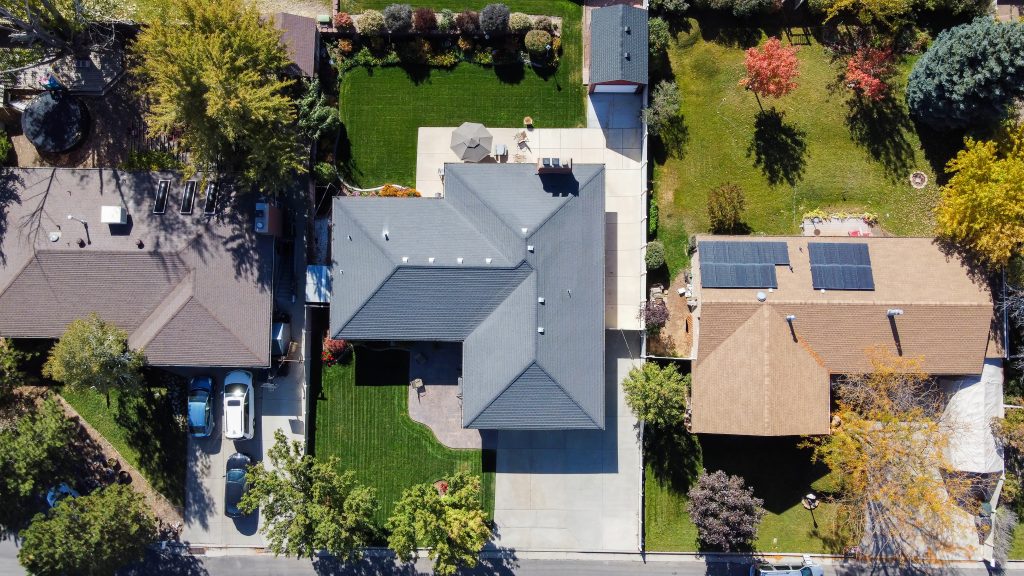
- Buying a resale property offers more living space and lower prices than new properties, as well as potential housing grant options.
- Purchasing a resale property allows you to review past owners and any improvements that have been done to the property while avoiding extra unpredictable costs due to maintenance or repairs.
- Feel confident that everything is already in place, making it a great option for newlyweds or new home buyers looking to settle down quickly.
- Resale properties come with flexible payment plans and rapid possession options.
No matter what type of property buyer you are, determining what type of property is best for you can help take away some of the expectations by providing comprehensive information about both types so you can make an informed decision about which one will be most suitable for your needs. Get started today and find out which one will work best for you.
| Keep in Mind For those seeking a smooth process while finding your ideal home, you’ll see yourself settling into for years to come, with resale properties. |
Stage 3: How much you can afford
When buying real estate, it is important to stay one step ahead and assess your financial situation. Assuring yourself of what you can truly afford gives you the confidence to make decisions regarding investing in property. It is helpful to determine the cost-effectiveness versus affordability of a potential property to find the right value for money.
With this understanding, it is easier to navigate your finances as you plan out your cash flow and expenses. Don’t leave your dream home purchase to chance—ensure that you are taking all the necessary steps to have a smoother experience when buying real estate properties. That way, you can reach closer to achieving your goals!
6. Assess your financial situation
Knowing your financial situation and assessing the affordability of any potential property is easier today than ever before. When you’re ready to start investing in real estate, the most important thing to do is assess your financial situation. It’s important to figure out what you can afford and make sure that the real estate properties you choose won’t put too much strain on your finances.
● Cost-effectiveness vs. Affordability
Cost-effective versus affordability can be a difficult balancing act when it comes to buying a house. Cost-effectiveness is all about getting the most value for your money; it means being careful and strategic with how you spend when you’re buying a house. On the other hand, affordability is making sure that within your budget you can get what you need from a house in terms of location and size.
Cost-effectiveness doesn’t necessarily mean compromising on one aspect or another; instead, it might mean getting creative about locating inexpensive housing in desirable areas or finding houses that will give you great long-term returns on your investment. Whatever the case may be, potential buyers need to make a wise decision about whether they prioritize cost-effectiveness or affordability.

● Cash Flow vs. Expenses
Take the assumption out of your purchase decision and allow you to make the most informed choices for your financial future if you are aware of your cash flow and spending habits.
Cash flow is the fundamental way to understand how much a property will cost you beyond just its mortgage and taxes. Assess a range of expenses that impact your buying decision – whether it’s interest rates, anticipated maintenance, repair, and upgrade costs. Make sure every peso counts when it comes to buying a home, and open up empowered decision-making. Get ready for an easier experience navigating finances so you can confidently decide on your next property investment as a couple.
| Keep in mind Don’t leave your dream home purchase to chance – figure out what you can truly afford when buying real estate properties. |
Stage 4: Start looking for properties
This is where you will start to get an idea of what type of property you are looking for and what is available in your price range. It is important to keep an open mind at this stage, as you may find a property that you love that is outside of your initial budget.
7. Look online
Numerous websites allow you to search for properties based on your desired location, price range, and other factors. You can also find a wealth of information about different properties and neighborhoods on these websites.

8. Contact a real estate agent
Once you have an idea of the type of property you are interested in, you should contact a real estate agent. A real estate agent can help you schedule appointments to view properties that meet your criteria. They can also provide you with valuable information about different neighborhoods and properties.
| Keep in mind You should find a real estate agent you can trust. Your agent will be your advocate throughout the home-buying process and will help you navigate the often-complex world of real estate. When choosing an agent, be sure to interview several candidates to find someone who you feel comfortable with and who has experience helping buyers in your market. |
9. Find the right property for you
Once you have found a real estate agent, it’s time to start looking for the right property. Your agent will help you narrow down your search based on your budget, needs, and wants. Once you find a few properties that you like, it’s time to start touring them.
● Check the location
One of the most important things to consider when buying a property is its location. You’ll want to think about things like the surrounding neighborhood, public transportation, and schools in the area. You’ll also want to consider whether you want to be in a more urban or suburban area. You’ll want to make sure it’s in a safe area and that there are nearby amenities like grocery stores, schools, parks, and public transportation.
● Size of the property
Another important thing to consider is the size of the property. You’ll need to decide how many bedrooms and bathrooms you need, as well as how much living space you’re looking for. It’s also important to think about whether, for example, you want a single-family home in Taguig or a condo or a townhouse in Makati City.
| Keep in mind Make sure you take your time, do your research, and ask lots of questions before making your final decision on a property. |
10. View properties
After you have contacted a real estate agent, you will then begin viewing properties. This is an important step in the process as it allows you to get a firsthand look at the property and determine if it is a good fit for your needs. It is important to take your time when viewing properties and not rush into a decision.
● Curb appeal
The term is used to describe how attractive a property is from the street. This is important because it’s the first impression potential buyers will have of the property. If a property has great curb appeal, it can make a big difference in how quickly it sells.
● Design and Aesthetic
You’ll want to think about things like the type of architecture you prefer, paint colors, floors, and other interior design elements. It’s important to make sure that the property reflects your style and that you’re comfortable living in it for years to come.
● Neighborhood
The neighborhood can also be a big selling point. With good schools and low crime rates, it will be more attractive to potential buyers than a property in an undesirable area.
● Safety features
Safety is another important factor when buying a home. You’ll want the property to have basic safety features like smoke detectors, carbon monoxide alarms, and fire extinguishers. You should also think about whether you want to install a security system or other safety measures.
● Amenities
You’ll also need to consider the amenities that come with the home. Does it have an outdoor pool, a garage, a patio area, or other features? Think about which amenities are important to you and make sure they’re included in the property.
| Keep in mind When you drive up to a property, the first thing you notice is how it looks. The landscaping, the paint job, the condition of the roof – all of these things add up to the value of a property. If a property is well-maintained and looks inviting, it can be a huge selling point. |
Stage 5: Ask for the Price
This is where negotiations will take place to agree on the purchase price. If your offer is accepted, then you will move on to the next stage.

11. Do Your Research
Before you even start negotiating, you must do your research. You should have a good idea of what you can afford and how much wiggle room you have when it comes to negotiating. Additionally, it’s a good idea to be familiar with the real estate market in the area where you’re looking to buy. This will give you a better sense of what properties are selling for, and how quickly they’re selling.
You can use online resources or read publications to get an estimate of the property’s value, or you can hire a professional appraiser to give you a more accurate estimate.
12. Make an offer
Once you have found a property that you are interested in, you will then make an offer to the seller. The offer will be based on the asking price of the property, as well as any repairs or renovations that may need to be made. The seller may accept or reject your offer, or they may counteroffer with a different price.
| Keep in mind Your real estate agent will help you determine how much to offer based on comparable sales in the area and the condition of the property. Once your offer is accepted, it’s time to start the negotiation process. |
Stage 6: Negotiate
Having a good understanding of what you can afford as well as what the property is worth is essential to negotiating a great deal. This will also help you determine your bottom line and how much flexibility you have to work with.
13. Have a reasonable offer
When you make an offer on a piece of real property, you should make sure that it is reasonable. An unreasonable offer will likely be rejected by the seller and could cause them to be less willing to negotiate with you in the future. A reasonable offer is close to the estimated value of the property and takes into consideration any repairs or renovations that may need to be made.
14. Be prepared to walk away
If the seller isn’t budging on price, or if they’re asking for something that you’re not comfortable with, be prepared to walk away from the deal. There are plenty of other properties out there, and there’s no reason to settle for something that doesn’t meet your needs or budget.
If the seller accepts your offer, you will then begin negotiating the terms of the sale. This can be a complex process, so it’s important to have your real estate agent by your side. They will help you navigate the negotiation process and ensure that you get the best possible price on your new home. This includes things such as the purchase price, closing costs, and any repairs or renovations that need to be made.
| Keep in mind One of the most important things to do when negotiating the price of a piece of real property is to do your research. You should have a good idea of the real estate market in the area before you start negotiating with the seller. |
Stage 7: Get a home inspection
This is an essential step in the process as it will help to ensure that there are no major problems with the property that you are not aware of. A home inspection is an examination of the condition of a home, typically conducted by a licensed professional – ie., a real estate appraiser, or surveyor. The buyer is responsible for paying for a home inspection to ensure the property is in good condition.
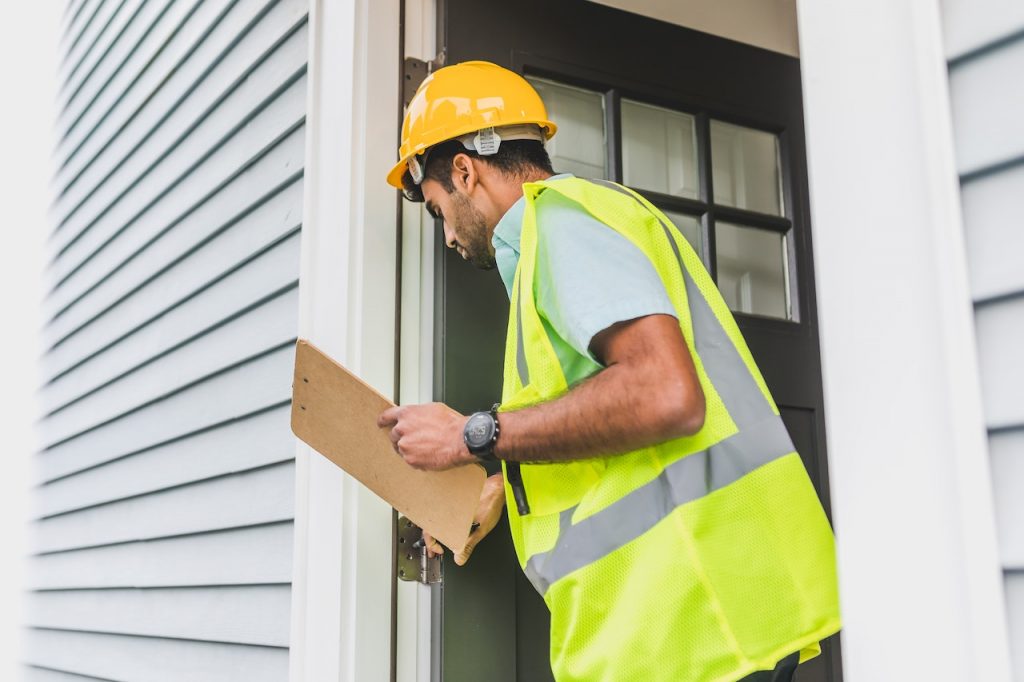
15. Hire a professional home inspector
In the Philippines, personal inspection of properties is a common practice for prospective buyers. These inspections involve mostly looking at the exterior, and anyone may be able to do a personal inspection. Professional home inspectors, however, go a step further in their assessments and check for signs of water damage, foundation issues, or any other structural problems. This thorough inspection helps ensure that any property you are interested in meets all expected standards and can help you decide if it is the right investment.
● Exterior
- A home inspector will begin by assessing the exterior, looking for any damage or potential hazards.
- They will check the foundation and siding for cracks and issues with the roof.
- Additionally, they will inspect trees and other vegetation to determine if it could be a hazard to the house.
● Interior
- Once inside, they will check for signs of water damage, mold, or other structural issues.
- They will also examine walls, floors, ceilings, all doors, and windows to ensure they are in good working order.
● Electrical System
- The home inspector will inspect the electrical system of the home, looking for any signs of electrical hazards.
- They will test all outlets and light fixtures.
- Fuse boxes or panel breakers are ensured to be in good working order.
● Plumbing System
- An inspector will inspect the plumbing system of a home, checking all pipes and fixtures for leaks or other problems.
- They will run the faucets and flush the toilet to ensure they work well.
● Heating and Cooling System
- The home inspector will inspect the plumbing and then move on to examine the heating and cooling system.
- They will check for wear and tear on components, test the thermostat, and no leaks in ductwork, and test both furnace and air conditioner to ensure they are working orderly.
● Attic and Crawlspace
- The final step in a home inspection is to examine the attic and crawlspace (if there is one).
- They will look for any water damage or mold growth.
- They will also check for other structural problems, such as loose boards or weak supports.
Once you have received the home inspection report and decided that you would like to proceed with the purchase, you will need to negotiate a purchase price with the seller. If the seller is not willing to budge on the asking price, you may need to walk away from the deal.
| Keep in mind A thorough inspection is necessary before buying a property. Look for any potential problems that could affect its value. |
Stage 8: Shop around for the best rate
Once you have an idea of how much is the property you are buying, it’s time to start shopping around for the best interest rate. Interest rates can vary significantly from lender to lender, so it’s important to compare rates before making a decision.

Stage 9: Terms of Sale
Real estate properties come with different terms of sale. Pre-selling properties render more potential for growth and yield, while resale properties present an excellent opportunity for an immediate return on investment.
With preselling, you are buying a property that has yet to be built and terms of sale tend to be advantageous for those who can invest larger amounts; terms might include lower deposits or deferred payment terms.
Resale terms are often more straightforward, with conditions such as standard closing costs and earnest money deposit. Whether you’re looking to invest in pre-selling, or resale properties, familiarizing yourself with all terms of sale will ensure that you make an educated decision that maximizes your return in the long run.
A. Pre-selling Properties
Available for purchase through different schemes that developers offer, pre-selling properties offer the most common scheme which is rent-to-own. It requires a reservation fee of 1% to 5%, typically amounting to Php 5000 to Php 25,000.
A downpayment of 5% to 20% is required, with the remaining amount paid via in-house financing, bank financing, or government housing programs. Monthly installments are often extended for up to 5 years. Once the unit is completed and ready for occupancy, and all the payments have been completed, the title is then adjusted accordingly. Pre-selling properties are offering unique advantages and help turn your dream home into a reality.
B. Resale Properties
If you want to purchase a property that already exists, the resale property is an inspired choice. Resale properties come with all kinds of features that make them attractive to buyers. It provides significant advantages to prospective buyers.
- With resale properties, you often get more than what you bargained for – lush perennial gardens, sturdy and functional outbuildings, neighbors who have familial connections with the area, and carefully chosen furniture that fits in perfectly with the existing layout of the home.
- There is an abundance of unique choices available to meet your family’s needs.
- Additionally, resale financing offers lower interest rates due to its lower risk factor as professional inspections are often completed before the sale.
Investing in a resale property is an easy way of getting just what you want for your next residential relocation.
16. Cash Payments
Resale properties need not be complicated with cash payments.
● Earnest Money
Cash payment timelines depend on the negotiation between the buyer and seller but typically begin with earnest money or a reservation fee which is considered part of the sale price. This acts as a signal of interest and serious intent toward purchasing the property from the buyer’s side.
● Down Payment
Concurrently, a down payment is made to indicate that a sales transaction has been entered into by both parties involved. This ensures that the owner will no longer entertain any other interested buyers.
● Contract to Sell
CTS or Contract to Sell is then issued, which indicates fundamental specifics such as cost of purchase, payment terms, and so on.
● Deed of Absolute Sale
Once all requirements listed in the Contract to Sell (CTS) have been met and the remaining amount has been paid, execution of the Deed of Absolute Sale (DoAS) is issued. Release of property happens after all the documents are in the name of the buyer.
| Keep in mind Paying in cash for resale properties need not be difficult if done right and can be achieved with the aid of real estate professionals or any closing agencies. |
17. Bank Financing
Loan terms for a resale property can vary, depending on the financial institution you choose. Terms are subject to the creditworthiness of the borrower, the size of the loan, and other qualifying criteria. Loan terms also depend on specific property characteristics that can affect the security of a loan — such as location, age of the borrower, condition, infrastructure, and more. Additionally, mortgage rate options available through various lenders might vary due to market conditions at any given time, so it pays to shop around for mortgage options when considering a resale property purchase.

Loan terms for resale properties with bank financing are generally easier to manage than buying a property from a developer. Ideally, applying for a bank loan with their approval should be done before looking for any property to purchase. The lending bank will then assign an appraiser to visit the house and determine if the resale property is worth its listed price.
Once approved, earnest money and contract to sell documents should be submitted to the lending bank and they shall issue a Letter of Guarantee (LoG) for the remaining proceeds. The last step includes the execution of the Deed of Absolute Sale, which legally finalizes all bank financing transactions. Bank financing, then, provides the surety that your transaction record is all in order.
● Earnest Money (Reservation Fee)
By paying a reservation fee, you can reserve a piece of property of your choice. This deposit is typically 1-5% of the purchase price of the home and is paid to the seller at the time the contract is signed. This fee is usually good for 30 days, and although it is non-refundable, you still have plenty of time to make sure your decision is right. This fee is deducted from the final selling price in either downpayment or a spot cash payment at closing.
● Down Payment
Getting approved for a loan on your dream home is attainable once you have settled your down payment. Requirements for paying the down payment vary depending on the financing company and the amount of the loan being applied for.
For buyers seeking to purchase their dream home, the down payment requirements can vary greatly and depend on several factors. Some lenders may require as little as 20% for the initial installment while others will demand up to 30% upfront – all with relatively different loanable amounts attached. Organizations like PAG-IBIG, SSS, or GSIS have distinct demands worth considering so research is integral when obtaining financing.
The good news?
Down payments can be made in cash, auto debit, or postdated checks – making them even more convenient for buyers to manage when taking this step toward their imagined living space. Additionally, if you’ve already been making payments on your residential condominium or apartment, let’s say, in Fort Bonifacio Global City; or a house in Muntinlupa and a piece of land in Tagaytay City – but are less than two years into it – down payments are refundable following The Maceda Law or The Realty Installment Buyer Act of 1972.
● Letter of Guarantee
Securing a Letter of Guarantee (LoG) for a home loan is a vital milestone in the process of house buying in the Philippines.
- It’s a confirmation that a lender has agreed to lend money to finance a purchase and includes details about repayment schedules, interest rates, and other relevant information.
- An LoG helps buyers feel secure that they are making an informed decision when purchasing their dream home by providing clear terms and conditions outlining what to expect from the loan agreement.
● Deed of Absolute Sale
A Deed of Absolute Sale is a legal document that finalizes the transaction when selling real estate.
- Upon signing, it grants ownership rights to the buyer in exchange for the purchase price.
- This document ensures both parties honor their agreement and that conditions are met for a successful sale.
- Deeds of Absolute Sale are essential documents for securely trading real estate properly.
| Keep in Mind Loan terms for a resale property are complex but understanding them will help make sure your purchase is financially sound. |
Stage 10: Factor in Other Costs
In addition to your mortgage payments, there are other costs associated with owning a home that you will need to factor into your budget. These costs can include fees, taxes, maintenance, and upkeep. By taking all of these costs into consideration, you can get a better idea of how much house you can afford.
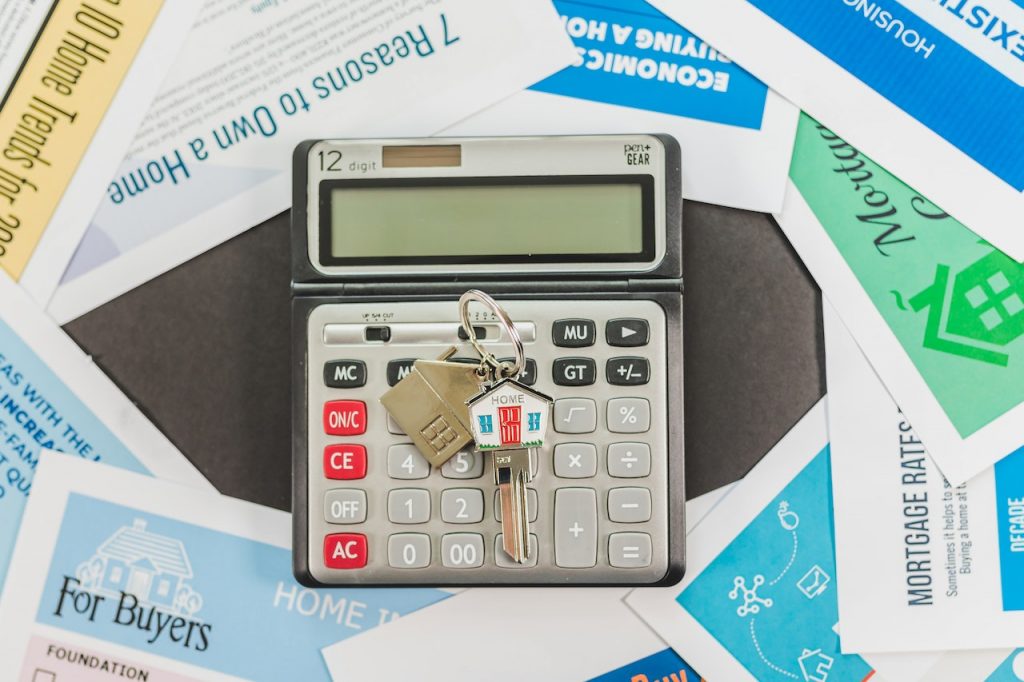
18. Fees
Buying real estate properties is not only an exciting venture, but it can be quite a costly process. Standard fees such as mortgage costs and closing fees are foreseeable expenses. Additionally, there may be additional charges that arise throughout the transaction process to consider; insurance, or other hidden charges all factor in. While starting with a budget is a smart idea when buying real estate, it always leaves room for unexpected hefty fees for a better financial buffer.
● Appraisal Fee
An appraisal fee is charged by a professional appraiser to determine the value of a property. This fee is typically paid by the buyer and is based on the appraised value of the property.
● Home Inspection Fee
A home inspection fee is charged by a professional inspector to assess the condition of a property. This fee is typically paid by the buyer and is based on the inspector’s findings.
● Mortgage Insurance Fee
A mortgage insurance fee is charged by a lender to protect them from loss if a borrower defaults on their loan. This fee is typically paid by the borrower and is based on the loan amount.
● Loan Origination Fee
A necessary evil when it comes to taking out a loan, Loan Origination Fees are charged by lenders to cover the costs incurred in processing your loan application. Loan origination fees are usually expressed as a percentage of your loan amount and usually range from 0.5% to 1%. Loan origination fees are an unavoidable part of taking out a loan, so it’s important to ensure you get the best deal possible. Doing your research and shopping around for the best loan product can save you money in the long run, helping to reduce this expense and making sure you pay only what is necessary.
● Title Insurance Fee
A title insurance fee is charged by an insurer to protect against loss if there are problems with the title of a property. This fee is typically paid by the buyer and is based on the purchase price of the property.
● Homeowners Association Fees
If you’re buying a condo or townhouse, you’ll need to pay monthly or yearly homeowners association (HOA) fees. These fees go towards maintaining common areas like pools or gyms, as well as paying for things like trash removal and snow removal. Be sure to factor HOA fees into your budget when considering different properties.
● Insurance
It’s also important to get homeowner’s insurance for your property. This will protect your home in case of fire, theft, or damage from natural disasters like storms or floods. Be sure to shop around for different insurance policies so that you can find one that fits your needs and budget.
19. Taxes
It’s important to remember that there are other costs associated with the entire process of buying a house. Taxes when buying property can add up, so it is important to be aware of what taxes you might need to pay throughout the real estate transaction.
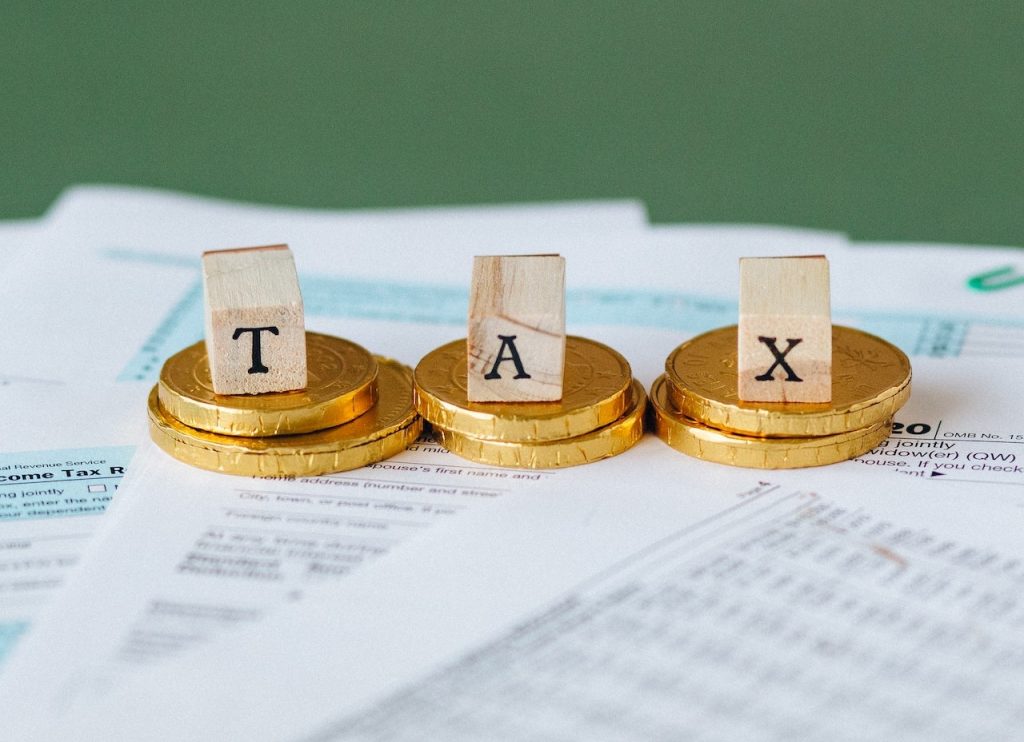
● Real Property Taxes
You’ll need to pay annual property taxes based on your property’s value. The amount you pay will also depend on the tax rate in your area. Levied by local governments to generate revenue for public services such as schools and roads, property taxes are fees that are typically paid by the homeowner. Be sure to factor property taxes into your budget when determining how much you can afford to spend on a home. Lastly, you’ll need to make sure that these taxes are paid in full or you may face some penalties and fines.
● Documentary Stamps Tax
This excise tax applies to the Deed of Absolute Sale which is executed between the seller and buyer when transferring property. Documentary Stamps Tax requires payment of 1.5% of whichever is higher between the selling price, the fair market value, or the zonal value of a real estate property. Documentary Stamps serve as a safeguard to legal documents that attest to acceptance, sale, and transfer of ownership.
● Transfer Tax
Transfer taxes are a key timeline point in the property sale process. Transferring property is a complex and potentially costly process involving the registration of title from the seller to the buyer’s name and it is essential for any official record or just to establish proof of new ownership through a sale.
Depending on where you purchase, transfer taxes range between 0.5% to 0.75%, and are calculated either based on the selling price, zonal, or fair market value – whichever value is higher.
| Keep in Mind When it comes time for a purchase or sale of a home, there’s much more at work than just mortgage payments – know all of your taxes when buying properties so that no surprise additional costs arise mid-transaction. |
20. Maintenance and Upkeep
Another thing to keep in mind is that owning a home requires regular maintenance and upkeep. You’ll need to budget for things like painting, repairs, and landscaping. If you’re not handy, you may also need to hire someone to help with these tasks.
21. Resale Value
Finally, you’ll want to consider the resale value of the property when making your purchase. You’ll want to look at things like recent sales in the area and projected appreciation rates so that you can determine whether or not it’s a good investment. This will help ensure that you get a good return on your investment when it comes time to sell.
● Market Value vs Market Price
It is important to understand the difference between Market Value and Market Price when buying a property. Market value and Market price are two concepts that are related, yet distinct.
Market value is based on an appraisal, taking into consideration all financial expenses such as brokers’ fees that may influence a property buyer’s decision.
Market price looks at a potential buyer’s willingness and ability to pay, allowing for flexibility in trade-offs. Market price does not factor in realtor costs or closing charges which may differ in different locations.
| Keep in mind When purchasing real estate property, buyers should be aware of the various fees and taxes associated with the transaction. Moreover, although many lenders assume owners have insurance in place for the property they’re taking out a loan on, it isn’t always included in the sale. And finally, there are usually hidden charges when buying such a substantial investment – each should be considered carefully before signing any dotted lines. |
The Final Stage: Transfer of Ownership
Transferring ownership of a physical property is an intricate process. It involves transitioning the rights and responsibilities of that property to its new owner, carefully ensuring all legal documents are signed in agreement and all the requirements written in the Letter of Agreement issued by the lending bank are met before anything else happens.
22. Transfer of ownership through the sale
The transfer of ownership through sale is a process that requires coordination between parties, specific legal documents, and the payment of tax and fees. The Civil Code of the Philippines is the regulation governing the transfer of real property. The deed of sale must be completed with a notary public overseeing and witnessed so that it can legally be registered with the Registry of Deeds.
Transferring title is one of life’s biggest investments so it shouldn’t be taken lightly; make sure your paperwork is complete and you understand all associated costs before moving forward!
| Keep in Mind The important thing to remember when looking to transfer ownership through sale is that you need to factor in such costs as the transfer tax, capital gains tax, and registration fees. |
23. The essential requirements for transferring ownership of property
What documents are required for a property transfer in the Philippines? Aside from the Notarized Deed of Sale of your real estate transaction, these are the documents needed when processing the Transfer of Title:
- The original TCT or Certificate of Title issued in the name of the Seller
- The latest Tax Declaration of the property
- The Transfer Tax Receipt
- The Documentary Stamp Tax
- The registration fee
- The notarization fee
- The Mortgage Clearance Certificate
- The Certificate of No Adverse Claim
- The Seller’s valid ID and proof of billing
- The Buyer’s valid ID and proof of billing
- Tax Identification Numbers (TIN) of the Seller and Buyer
- Community Tax Certificate (Cedula) of the Seller and Buyer
- The process of transferring ownership of a property in the Philippines begins with the execution of a deed between the seller and buyer.
24. Closing the deal
With funds released and paperwork finalized, closing the deal on a real estate transaction is an exciting process. Both parties must guarantee that all conditions and obligations are satisfied – then comes one final step, a triumphant exchange as keys shift hands into eager buyer’s possession marking them owners of their brand new property.
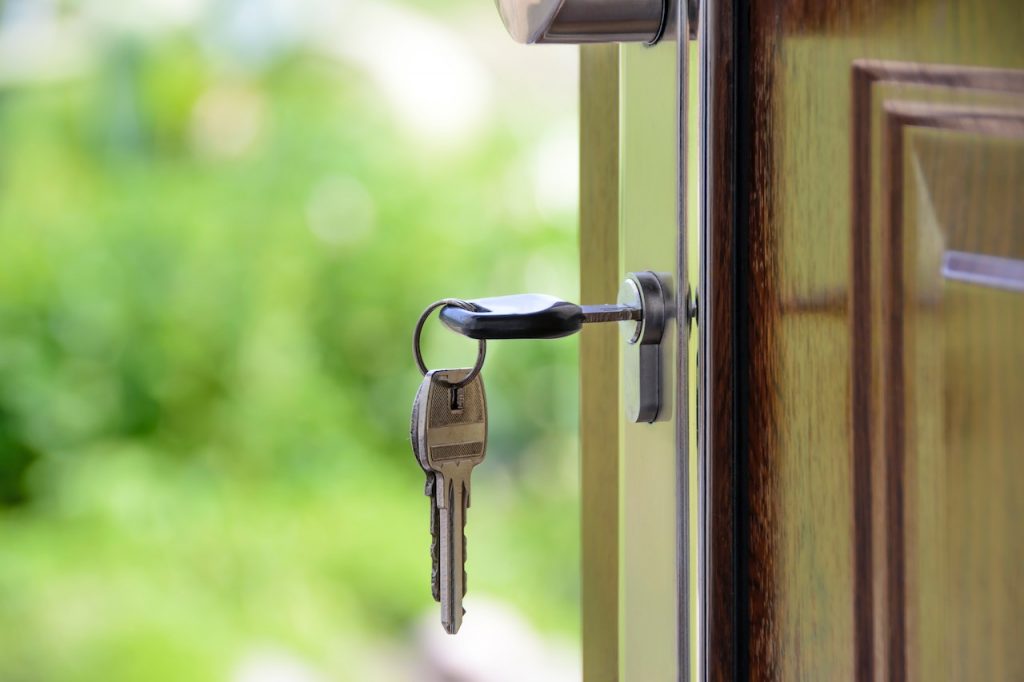
25. Moving In
Congratulations!
You and your partner have now completed buying your first real estate property. You can now move in and enjoy your new home! This is usually the most exciting part of the process, as you start fresh in a new space. Be sure to take your time unpacking and making your new place feel like home sweet home.
Parting Note
We know that dealing with legal and financial jargon is confusing and overwhelming, so our team at HousingInteractive works hard to present insights to newlyweds, new home buyers, young couples, and investors. With our guidance, you won’t miss any key considerations when browsing available properties or considering what type of structure best fits your needs. With these in mind, you’ll be able to make an informed decision when buying your first property as a couple.
Good luck!





















